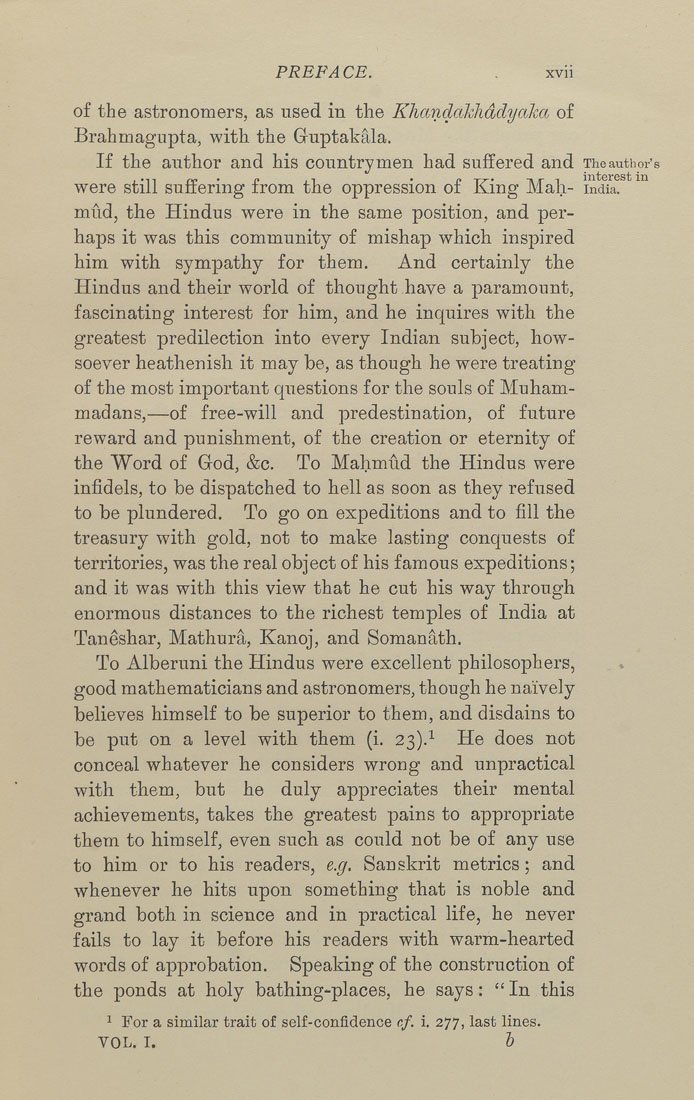Bīrūnī, Muḥammad ibn Aḥmad, Alberuni's India (v. 1)
(London : Kegan Paul, Trench, Trübner & Co., 1910.)
|
||
|
|
|
|
| Page xvii |

PREFA CE. xvii of the astronomers, as used in the Khandahhddyaka of Brahmagupta, with the Guptakala. If the author and his countrymen had suffered and The author's were still suffering from the oppression of King Mah- India, mud, the Hindus were in the same position, and per¬ haps it was this community of mishap which inspired him with sympathy for them. And certainly the Hindus and their world of thought have a paramount, fascinating interest for him, and he inquires with the greatest predilection into every Indian subject, how¬ soever heathenish it may be, as though he were treating of the most important questions for the souls of Muham- madans,—of free-will and predestination, of future reward and punishment, of the creation or eternity of the Word of God, &c. To Mahmud the Hindus were infidels, to be dispatched to hell as soon as they refused to be plundered. To go on expeditions and to fill the treasury with gold, not to make lasting conquests of territories, was the real object of his famous expeditions; and it was with this view that he cut his way through enormous distances to the richest temples of India at Taneshar, Mathura, Kanoj, and Somanath. To Alberuni the Hindus were excellent philosophers, good mathematicians and astronomers, though he naively believes himself to be superior to them, and disdains to be put on a level with them (i. 23).^ He does not conceal whatever he considers wrong and unpractical with them, but he duly appreciates their mental achievements, takes the greatest pains to appropriate them to himself, even such as could not be of any use to him or to his readers, e.g. Sanskrit metrics; and whenever he hits upon something that is noble and grand both in science and in practical life, he never fails to lay it before his readers with warm-hearted words of approbation. Speaking of the construction of the ponds at holy bathing-places, he says: "In this 1 For a similar trait of self-confidence cf. i. 277, last lines. VOL. I. h |
| Page xvii |







